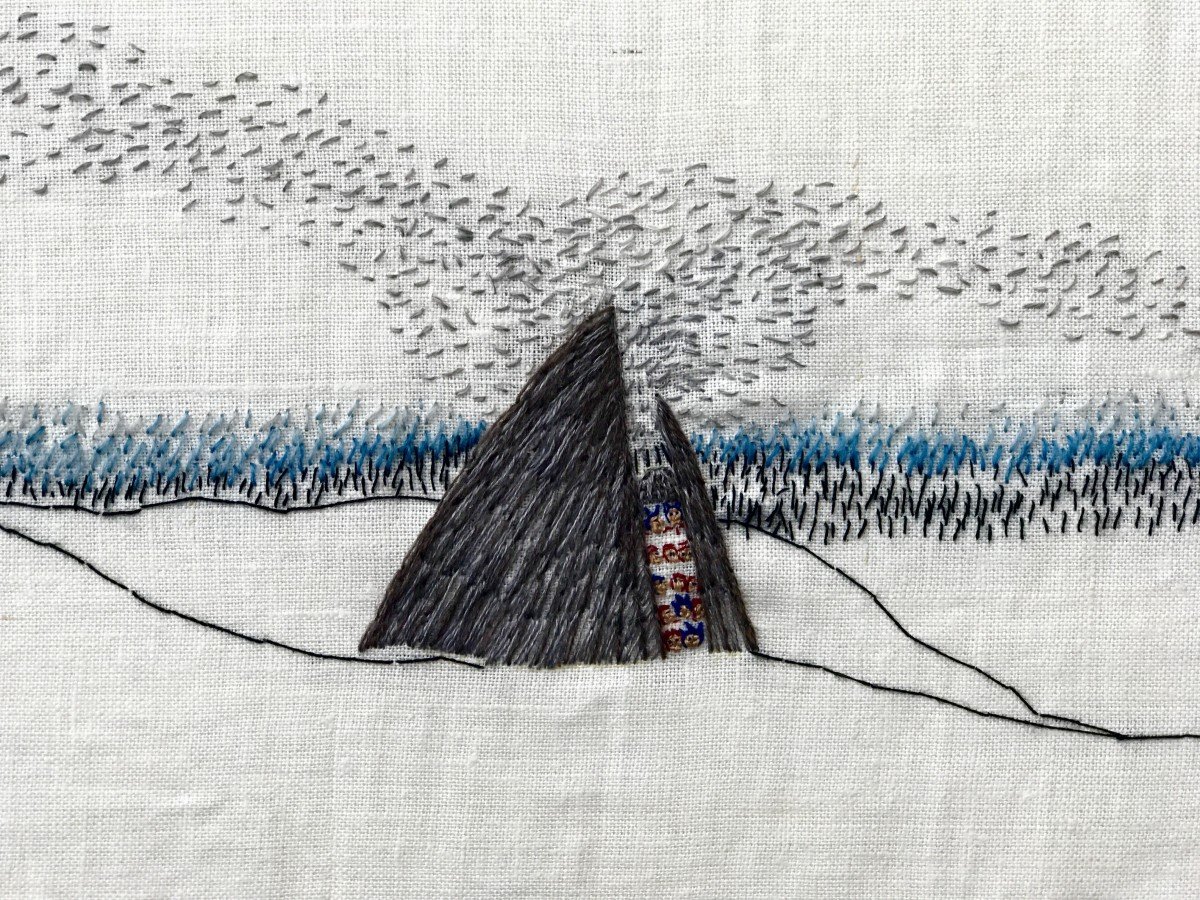
Britta Marakatt-Labba, Historja, 2003-2007 (fragment), Embrodery, print, appliqué, and wool on linen
LCCA's Summer School Communicating Difficult Pasts
Where: Kuldīga
When: 2–7 August 2019
We live in a time of increasing violence, which is gender, community and class based. These aspects need to be considered in order to understand its operation, while finding ways to communicate both past and present violence has become pertinent for understanding contemporary societies. Summer School's programme explores the complexities of communicating the 20th-century past, and analyses how art and culture can advance debates and thus influence current realities.
For the sixth year the Summer School of the Latvian Centre for Contemporary Art (LCCA) is held in cooperation with Kuldīga Artist Residency, the Art Academy of Latvia and the Estonian Academy of Arts. The Summer School continues to draw on developments in critical thinking, artistic research and creative practices related to actual debates in contemporary culture. Its central question is how violent pasts remain with us and how contemporary artistic research and curatorial projects have found ways to mediate their different dimensions. Our programme brings together interdisciplinary scholars, artists and curators who have analysed the contemporary legacies of the Second World War and related them to Cold War and postcolonial frameworks .
Difficult knowledge (Roger Simon, Erica Lehrer) and difficult heritage (Sharon MacDonald) offer important perspectives to traumatic and long-silenced histories and modes of their remembering. These discourses bring themes which are often invisible or marginalised in public knowledge. Artists and scholars engaging with these subjects confront the increasingly prevailing representations of selective memory, which by rejecting particular experiences, ignore difficult history. The mediations of difficult pasts we will touch upon concern violent conflicts and traumatic losses, their afterlives in personal experiences, the lives of communities owing to forced migration and deportation, subjugation of indigenous people, practices of exclusion and othering of communities. For instance, how could more complex and layered histories be told that complement disputed pasts with new perspectives, in ways that combine critical consciousness with empathic understanding? How could violent histories be narrated in ethical and audience-conscious ways? The Summer School programme will draw parallels between different histories, which are often confronted with each other in competing terms. Furthermore, we will consider how to apply intersectionality to thinking about the past and present in the Baltic Sea region .
The Summer School Communicating Difficult Pasts focuses on the uneasy relations between pasts and presents, their entangled nature in the 20th century and the impact that these difficult histories have left to contemporary realities in the Baltic Sea region. Topics such as the legacy of right- and left-wing ideologies and their impact on rising populism, intolerance towards cultural difference and marginalisation of ethnic minorities or queer communities are entangled in the region with histories of the Holocaust, Soviet repressions and colonialisms. These experiences are often addressed, researched and discussed locally or nationally; this Summer School aims at understanding the relationships between these difficult and traumatic pasts and articulating their influences and presence today through the perspective of shared histories.
Speakers who organised workshops and lectures are distinguished thinkers and experts in the fields of visual art, cultural history and theory, as well as memory, feminist and LGBTQ+ studies. They introduced research and curatorial projects and discussed intersections between minority studies, postcommunist and postcolonial discourses. The speakers include Violeta Davoliūtė, Professor of Political Science at Vilnius University (tbc), Ilya Lensky, Director of the Museum ‘Jews in Latvia’ (tbc), artist Harri Pälviranta from Finland, Adi Kunstma, Senior Lecturer from the University of Manchester and Norwegian-Sami artist Máret Ánne Sara.
The curators of the Summer School programme are Ieva Astahovska and Margaret Tali.